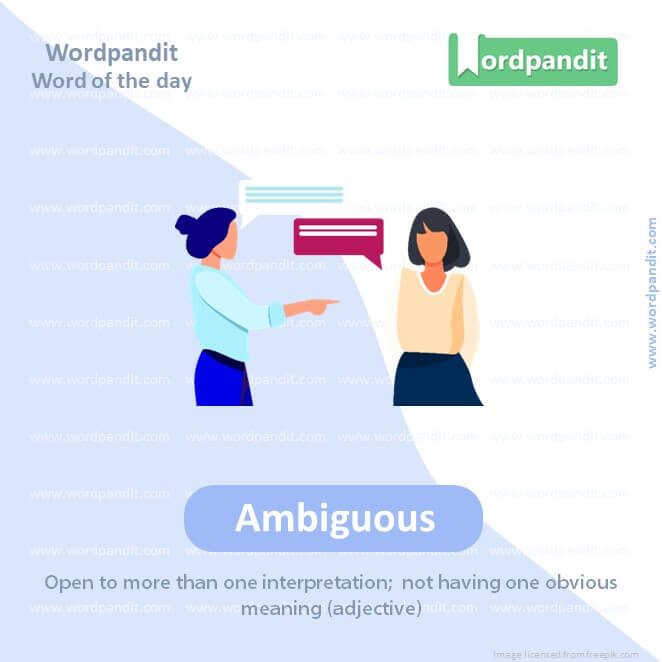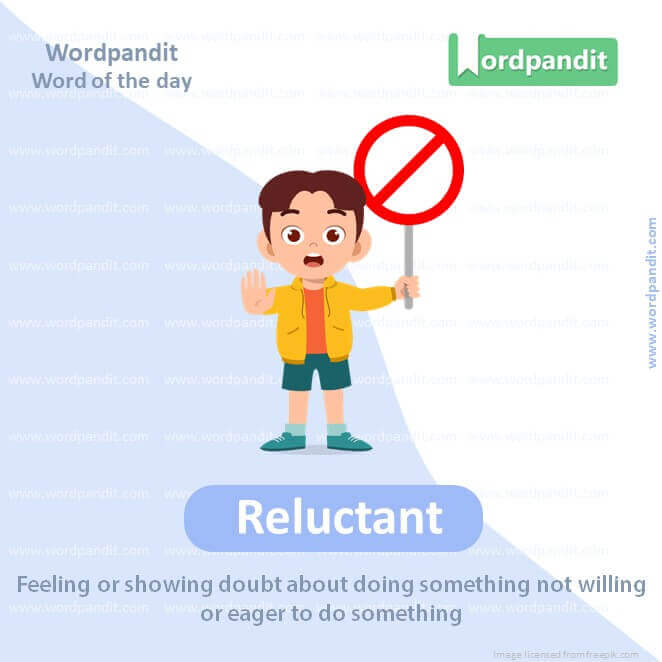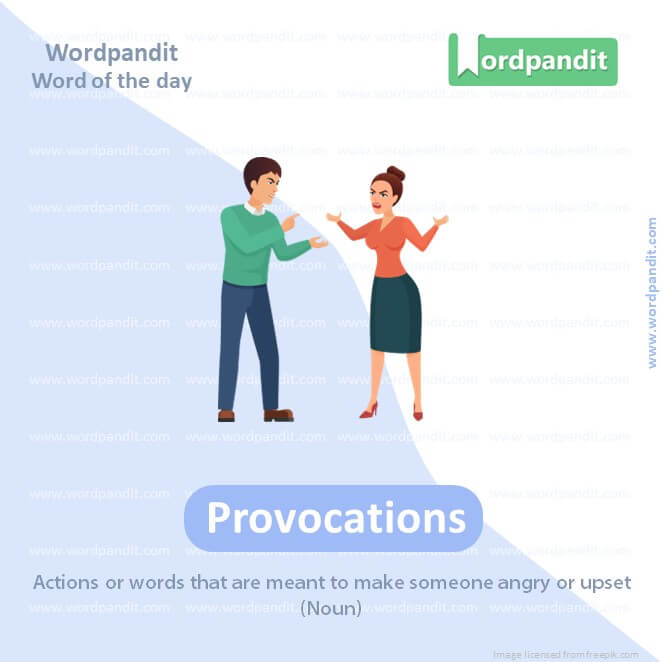Daily Vocabulary Words: Enhance Your Lexicon with Leading Newspapers & Publications
Welcome to the Daily Vocabulary section at Wordpandit!
Our mission is straightforward: to bring you essential vocabulary words featured in top newspapers and publications worldwide. By focusing on words you’ll encounter in renowned sources, we aim to help you enhance your vocabulary effectively and practically.
Our selection includes words from:
– The New York Times
– The Washington Post
– Scientific American
– BBC
– The Guardian
– Psychology Today
– Wall Street Journal
– The Economist
– The Hindu
– The Times of India
– The Economic Times
– Hindustan Times
– Live Mint
– The Indian Express
– And many more.
We are committed to your vocabulary development. Simply visit this section regularly and explore the daily posts. This is your go-to repository for commonly used words, providing significant practical benefits by familiarizing you with vocabulary from the leading publications listed above.
Make it a habit to visit our website daily and expand your lexicon with words from top newspapers and publications. (edited)
WORD-1: Solicited
CONTEXT: The Singapore government played a significant role in designing the capital of Andhra Pradesh, as did the renowned London-based Foster + Partners on being solicited by Mr. Naidu.
SOURCE: The Hindu
EXPLANATORY PARAGRAPH: If you ask someone for something, like if you ask your friend for a toy, and they give it to you, that’s called “soliciting.” It’s when you ask for help or something you need from someone.
MEANING: To ask for or try to get something (verb, past tense).
PRONUNCIATION: suh-LIS-uh-tid
SYNONYMS: Requested, asked, sought, appealed, petitioned
USAGE EXAMPLES:
1. The charity solicited donations from the community.
2. She solicited advice from her mentor before making a decision.
3. They had solicited feedback from customers to improve the product.
4. The company solicited bids for the new project.

WORD-2: Expediency
CONTEXT: For the sake of political expediency or perhaps a more justifiable reason, he changed tack, thereby pushing Amaravati into oblivion but with a promise to develop it as the ‘Legislative Capital’ comprising the Legislative Council and Assembly.
SOURCE: The Hindu
EXPLANATORY PARAGRAPH: If you do something quickly and easily, even if it’s not the best way, that’s called “expediency.” It’s like choosing the fastest way to get something done, even if it’s not perfect.
MEANING: The quality of being convenient and practical despite possibly being improper or immoral
PRONUNCIATION: ik-SPEE-dee-uhn-see
SYNONYMS: Convenience, practicality, efficiency, quickness, suitability
USAGE EXAMPLES:
1. For the sake of expediency, they used a temporary solution.
2. The decision was made out of expediency rather than thorough planning.
3. The expediency of the process helped them meet the deadline.
4. Sometimes expediency can lead to shortcuts that might not be the best.

WORD-3: Pertinent
CONTEXT: It is pertinent to mention that the TDP and the Jana Sena Party (JSP) have been saying that the ‘three capitals’ was a ‘failed experiment’ copied from South Africa which tried Pretoria, Cape Town and Bloemfontein as the executive, legislative and judicial capitals.
SOURCE: The Hindu
EXPLANATORY PARAGRAPH: If something is “pertinent,” it means it is directly related to what you are talking about or doing, like if you’re talking about animals and someone mentions a lion, that’s pertinent to your conversation.
MEANING: Relevant or applicable to a particular matter (adjective)
PRONUNCIATION: PUR-ti-nuhnt
SYNONYMS: Relevant, appropriate, applicable, suitable, related
USAGE EXAMPLES:
1. She provided pertinent information for the project.
2. The questions asked were pertinent to the discussion.
3. He made sure to include only the most pertinent details in his report.
4. The judge asked for all pertinent documents related to the case.
WORD-4: Streamlined
CONTEXT: The Court recognised that requiring a judge to countersign each living will ‘impaired, if not completely defeat’ the objective of its judgment, and streamlined the procedure.
SOURCE: The Hindu
EXPLANATORY PARAGRAPH: If something is “streamlined,” it means it is made simpler and more efficient, like when you make a toy car with fewer parts so it moves faster. It’s about making things work better and easier.
MEANING: Made more efficient by removing unnecessary elements (adjective).
PRONUNCIATION: STREEM-lined
SYNONYMS: Simplified, optimized, efficient, smooth, refined
USAGE EXAMPLES:
1. The company streamlined its processes to improve productivity.
2. They streamlined the design to make the machine more user-friendly.
3. The new system is more streamlined than the old one.
4. The team worked to create a streamlined version of the report.
WORD-5: Authenticate
CONTEXT: If the patient becomes terminally ill and does not have decision-making capacity, the treating doctor is to authenticate the living will against the copy held with the custodian or against digital health records, if any.
SOURCE: The Hindu
EXPLANATORY PARAGRAPH: To “authenticate” something means to check if it is real or true, like checking if a toy is really made by your favorite company. It’s making sure that something is genuine.
MEANING: To verify the authenticity or genuineness of something (verb).
PRONUNCIATION: aw-THEN-ti-kayt
SYNONYMS: Verify, confirm, validate, substantiate, certify
USAGE EXAMPLES:
1. The museum needed to authenticate the ancient artifact.
2. He had to authenticate his identity before accessing the account.
3. The expert was called in to authenticate the painting.
4. They use special methods to authenticate documents.

WORD-6: Ambiguous
CONTEXT: The whole subject is strange and unfamiliar, the guidelines are sometimes ambiguous, and the stakes are high.
SOURCE: The Hindu
EXPLANATORY PARAGRAPH: If something is “ambiguous,” it means it can be understood in more than one way, like if a story is told in a way that can mean different things to different people. It’s not clear or certain.
MEANING: Open to more than one interpretation; not having one obvious meaning (adjective)
PRONUNCIATION: am-BIG-yoo-uhs
SYNONYMS: Unclear, vague, uncertain, equivocal, obscure
USAGE EXAMPLES:
1. The instructions were too ambiguous and caused confusion.
2. His answer was ambiguous, leaving people unsure of his true opinion.
3. The law was criticized for its ambiguous wording.
4. The ambiguous message could be interpreted in several ways.

WORD-7: Reluctant
CONTEXT: State governments are reluctant to wade in; the area is complex and requires attention from medical and legal experts.
SOURCE: The Hindu
EXPLANATORY PARAGRAPH: If you are “reluctant,” it means you don’t want to do something or you are not very eager to do it, like if you are reluctant to go to bed early because you want to stay up and play.
MEANING: Feeling or showing doubt about doing something not willing or eager to do something.
PRONUNCIATION: ri-LUK-tuhnt
SYNONYMS: Unwilling, hesitant, disinclined, averse, loath
USAGE EXAMPLES:
1. She was reluctant to speak in front of the large crowd.
2. He felt reluctant to accept the new job offer.
3. The cat was reluctant to come inside during the storm.
4. They were reluctant to change the plan at the last minute.
WORD-8: Unwinnable
CONTEXT: Gaza is an unwinnable conflict and Israel and Palestine, bound by geography and destiny, will need to search for major climb-downs.
SOURCE: The Hindu
EXPLANATORY PARAGRAPH: If something is “unwinnable,” it means it is impossible to win or succeed at, like if you were playing a game with no chance of winning, it’s called unwinnable.
MEANING: Impossible to win or achieve (adjective).
PRONUNCIATION: un-WIN-uh-buhl
SYNONYMS: Impossible, lost, hopeless, futile, doomed
USAGE EXAMPLES:
1. The battle seemed unwinnable from the
start.
2. They realized the project was unwinnable and decided to withdraw.
3. The game was designed to be unwinnable as a challenge.
4. The situation appeared unwinnable due to the overwhelming odds.
WORD-9: Abstained
CONTEXT: The U.S., however, abstained this time and ‘let the resolution pass’.
SOURCE: The Hindu
EXPLANATORY PARAGRAPH: If you “abstained” from something, it means you chose not to do it, like if you abstained from eating sweets for a week because you wanted to be healthy.
MEANING: To deliberately avoid or refrain from doing something (verb, past tense).
PRONUNCIATION: ab-STAYND
SYNONYMS: Refrained, avoided, withheld, stayed away, opted out
USAGE EXAMPLES:
1. He abstained from voting on the controversial issue.
2. She abstained from eating chocolate during the diet.
3. They abstained from drinking alcohol at the party.
4. The committee member abstained from the decision due to a conflict of interest.

WORD-10: Provocation
CONTEXT: The latest estimates, the war in Gaza has resulted in the loss of over 32,000 lives in Gaza. Meanwhile, in a clear act of provocation, an Israeli strike in Syria targeted the Iranian Consulate in Damascus, killing a senior Al Quds leader on April 1, adding to the dangers of an enlarged conflict.
SOURCE: The Hindu
EXPLANATORY PARAGRAPH: If something causes you to react, like if someone teases you and makes you angry, that’s called “provocation.” It’s when something is done to make someone respond or react.
MEANING: Actions or words that are meant to make someone angry or upset (Noun)
PRONUNCIATION: prov-uh-KAY-shun
SYNONYMS: Instigation, irritation, incitement, annoyance, stimulus
USAGE EXAMPLES:
1. The provocation led to an argument between the two friends.
2. His comments were seen as a provocation by the other team.
3. They were careful to avoid any provocation during the negotiations.
4. The act of provocation was addressed in the court case.
Vocabulary list
In navigating the seas of language learning, a ‘vocabulary list’ can often be a dependable guiding star. These collections of words serve as a focused learning tool, yet the technique of mastering a ‘vocabulary list’ effectively requires more than simple perusal. It calls for a smart, sustained approach that amalgamates understanding, memory, and application.
Exploring a ‘vocabulary list’ should be more than a one-way trip. It ought to be more like a round trip, wherein you learn the words, come back to review them, and then set out again for a new voyage. This repeated interactive way of exploring the ‘vocabulary list’ aids in solid memory retention and effective learning.
Next, while dealing with a ‘vocabulary list’, employing memory-boosting techniques can bolster your retention substantially. Here, mechanisms like spaced repetition systems and flashcards can simplify and streamline the process. Moreover, associating words on your ‘vocabulary list’ with visual cues or personal stories can help your brain make strong connections, strengthening your recall ability.
However, the most crucial aspect of learning from a ‘vocabulary list’ is active application. Conquering a list without using the words in real-world contexts might leave you with fleeting knowledge. Hence, make it a point to integrate these learnt words into your daily interactions, be it on social media, in email exchanges, or casual conversations. The regular utilization reinforces your understanding and brings the ‘vocabulary list’ to life.
Conclusively, the ‘vocabulary list’ is a treasure trove in a language learner’s quest, waiting to be unlocked strategically. Through the trinity of review, memory-enhancing techniques, and active application, one can master any ‘vocabulary list’. So, take charge of your learning journey and set sail with your ‘vocabulary list’, charting the vast and fascinating seas of language.













